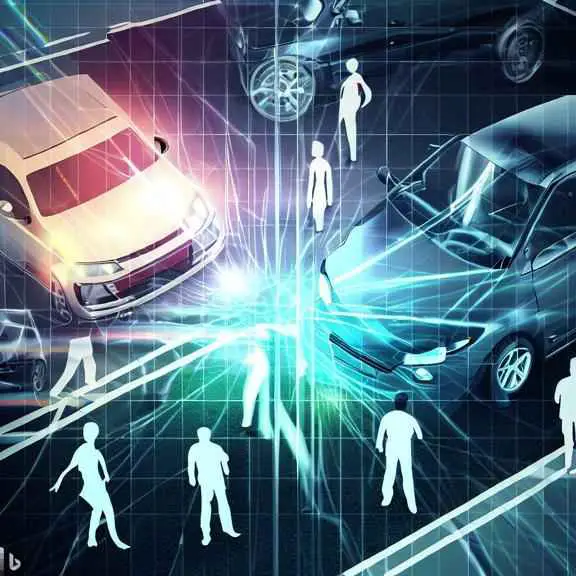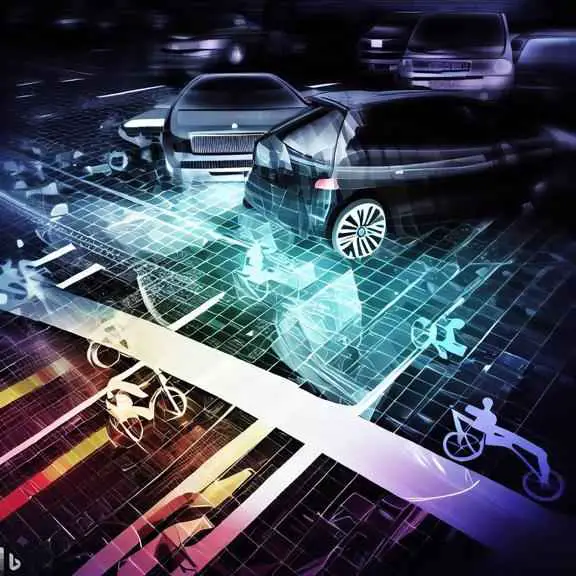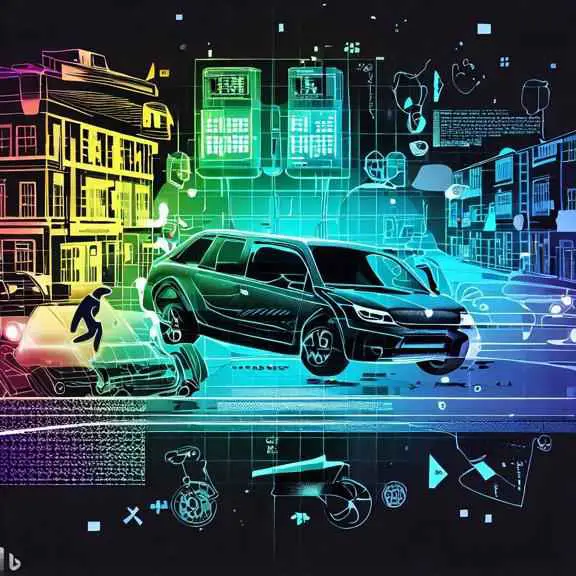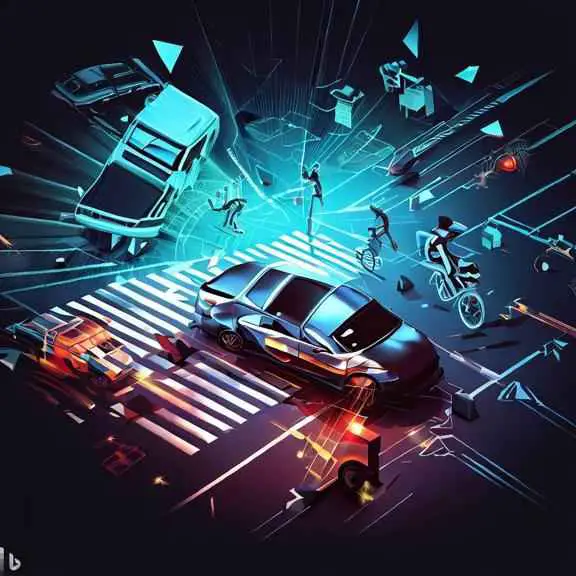Paragraph on
Street Accident
for all Class, Words
by Safety on
Driving or walking on the streets can be risky, as accidents can happen unexpectedly, causing injuries, property damage, or even fatalities…, please continue reading.

Table of Content
Ad
The Paragraph on Street Accident
Ad
Driving or walking on the streets can be risky, as accidents can happen unexpectedly, causing injuries, property damage, or even fatalities. According to the World Health Organization, about 1.35 million people die each year from road traffic crashes, and about 50 million people suffer non-fatal injuries, often leading to disabilities or trauma. Street accidents can occur due to various factors, such as human error, vehicle or road defects, weather conditions, or reckless behaviors. Drivers may speed, run red lights, drive under the influence of drugs or alcohol, or be distracted by their phones, passengers, or emotions. Pedestrians may cross without looking, jaywalk, use phones or earphones, or wear dark or camouflage clothes that make them hard to see. Cyclists may ride on the wrong side of the road, disregard traffic signals, or neglect to wear helmets or lights. Street accidents can also affect children, elders, disabled people, or animals, who may be more vulnerable and less able to protect themselves or understand the risks. Therefore, it is important to be aware of the dangers of the roads, to follow traffic rules, to use safety devices and equipment, and to respect the rights of others. By doing so, we can help prevent street accidents and promote mobility, health, and happiness for ourselves and our communities.

Questions about Street Accident
Ad
Questions and Answers:
- How many people die each year from road traffic crashes according to the World Health Organization?
- About 1.35 million people.
- What factors can cause street accidents?
- Human error, vehicle or road defects, weather conditions, or reckless behaviors.
- What are examples of reckless behaviors that may cause street accidents among drivers?
- Speeding, running red lights, driving under the influence of drugs or alcohol, or being distracted by phones, passengers, or emotions.
- What are examples of careless behaviors that may cause street accidents among pedestrians?
- Crossing without looking, jaywalking, using phones or earphones, or wearing dark or camouflage clothes that make them hard to see.
- Who are more vulnerable to street accidents?
- Children, elders, disabled people, or animals.
- What can we do to prevent street accidents?
- Be aware of the dangers of the roads, follow traffic rules, use safety devices and equipment, and respect the rights of others.
- What are the consequences of street accidents?
- Injuries, property damage, or fatalities.
- How can street accidents affect the mobility of a community?
- Street accidents can disrupt the flow of traffic, create congestion, and delay or cancel transport services.
- How can street accidents affect the health of a community?
- Street accidents can increase the risk of physical and mental trauma, infections, or climate-related illnesses.
- How can street accidents affect the happiness of a community?
- Street accidents can cause fear, anxiety, grief, or anger, and undermine social trust, equality, and justice.

Vocabulary related to Street Accident
Ad
Vocabulary:
- Risky - involving the possibility of harm or danger
- It is risky to drive with a broken taillight.
- Synonyms: hazardous, dangerous, uncertain
- Antonyms: safe, secure, certain
- Fatalities - instances of death caused by a particular event or condition
- The number of fatalities in car crashes is alarming.
- Synonyms: deaths, casualties, victims
- Antonyms: survivors, resuscitations, revivals
- Reckless - careless, thoughtless, or irresponsible in behavior or actions
- The reckless driver ignored the speed limit and almost hit a pedestrian.
- Synonyms: careless, irresponsible, heedless
- Antonyms: careful, responsible, mindful
- Vulnerable - susceptible to harm or injury, physically or emotionally
- The vulnerable children were left alone in the park.
- Synonyms: exposed, defenseless, fragile
- Antonyms: protected, defended, resilient
- Distracted - unable to concentrate or pay attention, usually due to external or internal stimuli
- The distracted student kept checking his phone during the exam.
- Synonyms: unfocused, inattentive, preoccupied
- Antonyms: focused, attentive, concentrated
- Congestion - the state of being overcrowded, blocked, or clogged, especially in traffic or transportation
- The congestion on the highway caused many delays and accidents.
- Synonyms: traffic jam, gridlock, bottleneck
- Antonyms: flow, ease, mobility
- Trauma - a deeply distressing or disturbing experience that may cause physical or psychological injury or dysfunction
- The trauma of losing a loved one can last for years.
- Synonyms: shock, stress, affliction
- Antonyms: comfort, relief, healing
- Disrupt - interrupt, disturb, or interfere with something’s normal functioning or continuity
- The loud music disrupted the peace and quiet of the neighborhood.
- Synonyms: disturb, upset, hinder
- Antonyms: facilitate, enhance, maintain
- Equality - the state of being equal, especially in rights, status, opportunities, or treatment
- The principle of equality is enshrined in many constitutions and laws.
- Synonyms: fairness, uniformity, justice
- Antonyms: discrimination, inequality, injustice
- Grief - intense sorrow or mourning, often due to the loss of someone or something dear
- The grief of losing a pet can be as profound as that of losing a human friend.
- Synonyms: sadness, pain, heartache
- Antonyms: happiness, joy, contentment

Structure of the sample "Street Accident" paragraph
Ad
Cohesion and coherence:
The paragraph on street accidents is well-structured and coherent, as it starts with a general statement about the risks of driving or walking on the streets, and then proceeds to provide specific examples and statistics on the causes, consequences, and prevention of street accidents. The paragraph uses various cohesive devices to connect the sentences and make the ideas flow smoothly, such as conjunctions (e.g., and, or, but, therefore), transitional words (e.g., according to, for example, also), and referencing expressions (e.g., who may be more vulnerable and less able). The paragraph also uses a mix of active and passive voice, depending on the emphasis and clarity of the sentence, and maintains a somewhat formal tone appropriate for the topic. Overall, the paragraph presents a clear and informative introduction to the topic of street accidents, and invites the reader to reflect on the importance of safety and responsibility on the roads.
